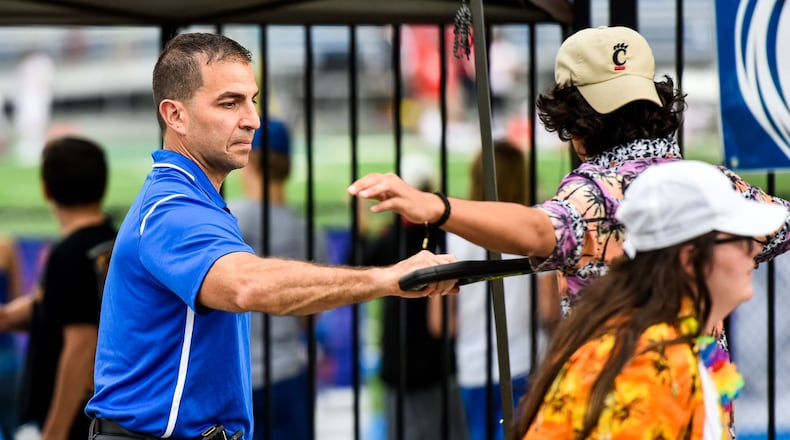Two of three public town hall meetings on the proposed tax and security issues in general have been scheduled.
The first public meeting will be at 7 p.m. Sept. 18 at the First Baptist Church, 1501 Pyramid Hill Blvd. A second meeting will take place at 7 p.m. Oct. 16 at the Booker T. Washington Community Center, 1149 South Front St.
Knapp said a third meeting in October is planned but has yet to be scheduled.
“We have been working to compile a detailed list of what we currently spend on safety related items and we also have a list of what we could spend the levy money on,” Knapp said. “The purpose of the town hall meetings is to share that information with the community and to get their input as to what they see as priorities for our schools.”
“The safety levy money could be spent on additional mental health support programs for our students K-12. We feel that the community sees the mental health services as the biggest part of this effort and we are in full agreement,” said Knapp.
“We also know the additional six full-time resource officers for the elementary schools has been of high interest as well. There has also be recent discussions around having a second school resource officer at Hamilton High School due to the size and large population of that building,” he said.
“Beyond that I would anticipate additional conversation around how we could spend money when it comes to making the school buildings safer for day-to-day operations with cameras, (bullet-resistant) safety film (for windows), sensors etc. and the costs associated with them,” said Knapp.
“The bottom line is that there are many pieces that come together to make our schools safe. Ultimately, we are seeking input as to what our community feels would make them safer,” he said.
The new Ohio school levy allows for taxpayer money to go directly to paying for all types of school security — including armed guards or staffers — as well as safety technology and additional mental health counselors to better identify and help students who may be candidates to lash out through deadly violence.
If voters in a school system do not approve the new tax — but the tax wins voter approval in other participating districts — residents in the district where the tax was defeated will still have to pay the tax increase and will also receive the new funds for their local schools.
Should the new tax issue earn a combined, winning vote total from all five districts, it would impact more than 28,000 students in the five participating school systems.
About the Author
